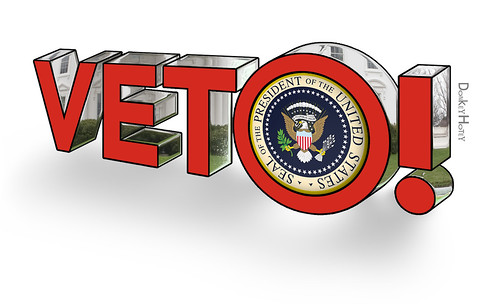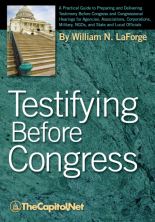From the Congressional Glossary – Including Legislative and Budget Terms
Veto

A veto is the disapproval by the president of a bill or joint resolution passed by Congress (other than a joint resolution proposing a constitutional amendment).
After both chambers of Congress have passed a bill, it is enrolled, then is sent to the president for his action. Under the Constitution (Article. I. Section. 7.), the president has 10 days (not including Sundays) to approve the bill. When the ten-day period (excluding Sundays) extends beyond the date of the adjournment of the Congress, and the president does not sign the bill prior to the expiration of that period, it fails to become law. This is known as a pocket veto.
What Is Veto Power? | History
More often, if the president disapproves of a bill, he actively vetoes it and returns it to the chamber of origin without his approval, along with his objections to the bill — known as his “veto message.” If Congress does not act to override the veto, the bill dies.
Also see
- Congress by the Numbers
- Pocket Veto
- Override a Veto
- Congressional Procedure
- § 6.292, Vetoes and Veto Overrides: Presidential Clout, in Congressional Deskbook
- Chapter 6.G. The President; in Congressional Procedure
Obama Vetoes the National Defense Authorization Act
More
- Presidential Veto Messages – USA.gov
- Congress by the Numbers
- Summary of Bills Vetoed, 1789-present – Senate
- “Presidential Vetoes, 1989–2000,” Compiled by the Senate Library, October 2001, S. Pub. 107–10 (61-page PDF
 )
) - “Veto Override Procedure in the House and Senate,” CRS Report RS22654 (9-page PDF
 )
) - “The Presidential Veto and Congressional Procedure,” CRS Report RS21750 (6-page PDF
 )
) - “Regular Vetoes and Pocket Vetoes: An Overview,” CRS Report RS22188 (6-page PDF
 )
)
Courses
- Congressional Operations Briefing – Capitol Hill Workshop
- Drafting Federal Legislation and Amendments
- Writing for Government and Business: Critical Thinking and Writing
- Custom, On-Site Training
- Preparing and Delivering Congressional Testimony and Oral Presentations, a Five-Course series on CD
- Congress, the Legislative Process, and the Fundamentals of Lawmaking Series, a Nine-Course series on CD
Publications

Testifying Before Congress

Pocket Constitution

Citizen’s Handbook to Influencing Elected Officials: A Guide for Citizen Lobbyists and Grassroots Advocates

Congressional Procedure
CongressionalGlossary.com, from TheCapitol.Net
For more than 40 years, TheCapitol.Net and its predecessor, Congressional Quarterly Executive Conferences, have been teaching professionals from government, military, business, and NGOs about the dynamics and operations of the legislative and executive branches and how to work with them.
Our custom on-site and online training, publications, and audio courses include congressional operations, legislative and budget process, communication and advocacy, media and public relations, testifying before Congress, research skills, legislative drafting, critical thinking and writing, and more.
TheCapitol.Net is on the GSA Schedule, MAS, for custom on-site and online training. GSA Contract GS02F0192X
TheCapitol.Net is now owned by the Sunwater Institute.
Teaching how Washington and Congress work ™

